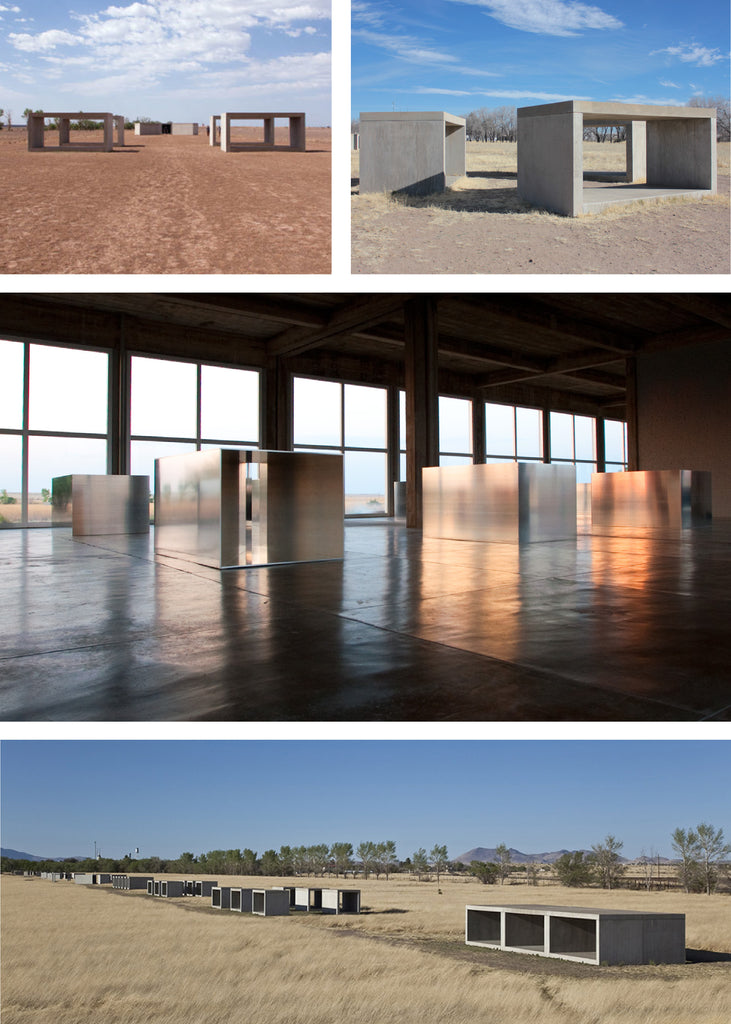Electing a site of voluntary obscurity, Donald Judd opened Chinati Foundation in 1986 on 340 remote acres of high desert in West Texas. Judd was an unfaltering voice on the merits of minimalism not only as an art form, but as a cultural revolution and a philosophical standard. He and his contemporaries were warriors of a contradictory message in a time of aesthetic and cultural excess. Judd established Chinati as a place for a permanent public collection of large-scale artworks. His site-specific work was created within the context of this remote landscape and he internalized the landscape as a medium. The constraint of minimalism is often mistaken as a rumination on a lessening of material or a simplification of meaning. It is in fact the absence which creates more depth in the principles at work. Hollow space doesn’t truly exist and Judd’s work created a democracy of mediums to demonstrate this concept. He valued the earth and sky as aesthetic partners to the same degree as precision formed concrete blocks and metal angled slabs. His work liberated the spatial considerations of modern art in a barren landscape inextricably linked to human made mediums giving way to the question of their influence on each other.
As if there were life without culture and thought - As if it were possible to live without withdrawing into one's self. - Donald Judd, 1987
Words by Brit Parks


Donald Judd; 15 works in concrete, 100 works in mill aluminum. Permanent installations at the Chinati Foundation in Marfa, Texas.

